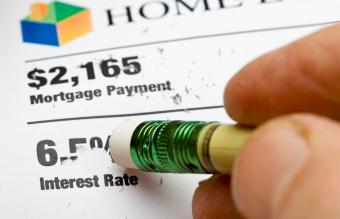
When you're trying to understand the ins and outs of financing a home be sure to ask your lender for a thorough explanation; mortgage types, repayment options, and other relevant factors included. It's a great idea to have a good understanding of the mortgage options available to you before you decide on one type of loan over another.
Quick Explanation Mortgage Types
Although every type of mortgage loan has specific attributes and special features in certain situations, it is easy to learn the basics of the various mortgage loans you will probably encounter when looking for a loan.
Fixed versus Adjustable
Mortgage loans feature interest rates that vary according to the lender's policies and the credit rating of the applicant. Borrowers must choose between a fixed rate mortgage and an adjustable rate mortgage.
- Fixed Rate Mortgage: The interest rate of a fixed mortgage does not change throughout the life of the loan. Payments may change slightly as escrow amounts fluctuate, but the interest rate remains constant as long as the borrower makes payments as scheduled and does not refinance.
- Adjustable Rate Mortgage: Also referred to as ARMs, these mortgage loans feature a variable interest rate that fluctuates according to the terms initially agreed upon by the lender and borrower. ARMs are usually connected to an index - such as the Prime Rate or LIBOR - and will go up and down reflecting the direction of the index.
A fixed rate mortgage is a more conservative choice than an ARM because ARMs tend to start with much lower interest rates but then have the potential to increase.
Conventional versus Jumbo
When applying for a mortgage loan you may encounter the terms conventional and jumbo. These are categories for mortgage loans based on the amount financed for the purchase of a home.
- Conventional: Mortgage loans that fall within the varying limits set by Fannie Mae are considered conventional. Most advertised interest rates and terms are only available for conventional loans.
- Jumbo: Mortgage loans that exceed the varying limits set by Fannie Mae are considered jumbo loans. Finding favorable financing for a jumbo loan can be a little more difficult, but by no means impossible.
Most mortgage lenders deal in both conventional and jumbo loans.
First versus Second
The terms first mortgage and second mortgage do not refer to buying a first home and then a second home, but rather to the primary (first) mortgage and any subordinate (second) mortgages.
- First Mortgage: This type of mortgage is the primary loan borrowers have on their home. It is the loan used to initially obtain the home, or a refinance of the original loan.
- Second Mortgage: These are loans which use home equity as collateral, but are considered mortgages nonetheless. Examples of second mortgage loans include equity loans and equity lines of credit.
When seeking explanation mortgage types regarding first and second mortgages, keep in mind that second mortgages can be used for whatever purpose and the funds do not necessarily have to go to home improvements or the purchase of additional property.
Guaranteed Loans
Some lenders deal with guaranteed loans. This term refers to mortgages that are guaranteed by another organization, allowing borrowers to have favorable terms such as little or no down payment.
- FHA: The Federal Housing Administration guarantees mortgage loans for eligible applicants. Borrowers with FHA loans can put give a lower down payment and may be able to receive a loan approval despite credit issues.
- VA: The Department of Veterans Affairs guarantees mortgage loans for eligible veterans, allowing applicants to purchase a home with no money down.
Both the FHA and VA may require a funding fee for guaranteeing a mortgage loan.
Other Mortgage Types
There are other terms that may require explanation mortgage types:
- Piggyback Mortgage: This more creative mortgage combines a first and second mortgage to allow the borrower to avoid private mortgage insurance (PMI).
- Reverse Mortgage: Homeowners can borrow from the equity in their home without requiring monthly repayment. This type of loan is usually used by seniors.
- Bridge Mortgage: These temporary mortgages cover the cost of purchasing a home before the first home sells.
Always Clarify
Never accept a certain mortgage loan type unless you completely understand and agree to the terms.







